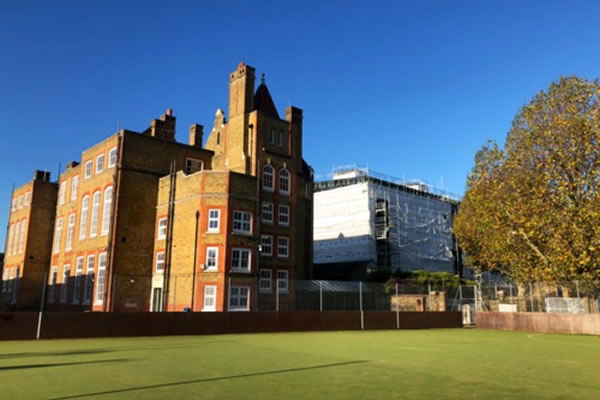Fulham Deputy Head Warns of Increasing Mental Health Issues
Says extreme behaviours among young girls are more prevalent than ever

Picture: Fulham Cross Academy
The number of young girls suffering with serious mental health issues has risen since the Covid pandemic, with some students hurting themselves and struggling to breathe in lessons, a school boss says.
Deputy headteacher of Fulham Cross Girls School, Victoria Tully, said students are suffering with a range of mental health issues as they struggle to adapt to school life after being stuck at home. Ms Tully said she has never seen so many students struggling mentally during her 24-year career in teaching.
She said, “We are seeing more extreme behaviours. It’s incredibly serious and as a school it’s very difficult to manage. It’s ranging from anxiety to suicidal thoughts and behaviours.
“Eating disorders have also gone massively up. We have found a massive increase in kids who can’t cope with noise who will flip out. I have never seen anything like it.”
The NHS has reported a rise in demand for mental health support for young people children since the pandemic, with around 630,000 in England getting help between October 2020 and September 2021. A study in July 2020 found one in six kids aged five to 16 has a probable mental health disorder compared with one in nine in 2017.
Ms Tully said the school has had to lock the toilets outside of lunch and break times to prevent girls self-harming in them. She added, “We were spending so much time looking for them. Staff have been affected quite badly by this as well. The level of our training in mental health for staff has rapidly increased.”
Ms Tully, who has worked at the school since 1999, said she has never witnessed such a spike in mental health problems among students and some are leaving lessons on a daily basis because they are too overwhelmed.
She believes girls’ mental health has been badly affected across the UK by a combination of things, like struggling to adapt to being back at school after long periods of home learning and the usual pressures of being a teenager and copying with exam stress.
Ms Tully said girls in years 10 and 11 have been the hardest-hit in terms of serious mental health issues including self-harm and suicidal thoughts but girls in years 7, 8 and 9 are also struggling with anxiety.
She later said, “It doesn’t reflect on their home lives at all. A lot of parents aren’t knowing what to do and how to make it better.”
Fulham Cross Girls School employs its own counsellor to help the girls once a week. Ms Tully said the service is essential because the waiting times range from six to eight weeks, whereas it can take around two years for young people to access counselling via the NHS.
The school also teaches students about the mental benefits of exercise and has set up a ‘Walk and Talk’ programme, where younger students can chat to older ones about their worries. Ms Tully said, “We have done literally everything we can think of. Most kids are amazing and they are resilient. I feel really lucky to do my job and I feel really honoured but some of them are having a really hard time.”
Ms Tully said she would recommend any parents whose children are struggling mentally to contact their GP and speak to their child’s school. She also said helpful advice can be found at the Anna Freud Centre, Place2Be, FRANK, and the NHS mental health crisis helpline.
If you are struggling with mental health issues, the Samaritans free and confidential phoneline is available 24 hours a day throughout the year on 116123. People can also contact them by email at jo@samaritans.org or write to Freepost, SAMARITANS LETTERS.
Hannah Neary - Local Democracy Reporter
March 21, 2022